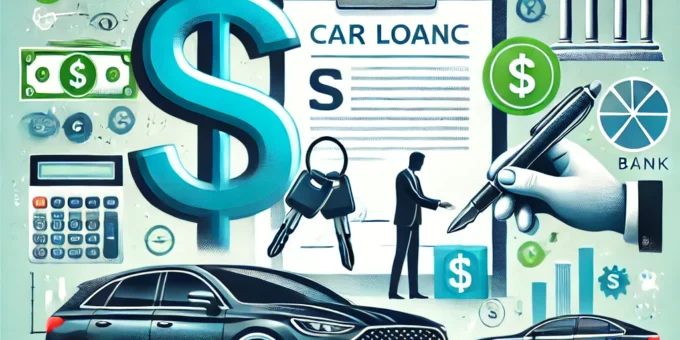
What Are Car Loans?
Car loans are financial agreements that allow buyers to spread the cost of a vehicle over a set period, making car ownership more accessible. Instead of paying the entire price upfront, a lender provides the funds to purchase the vehicle, and the borrower repays the loan in monthly installments, including interest.
For most people, car loans bridge the gap between their budget and the cost of a new or used vehicle. These loans are structured to accommodate different needs, offering flexibility in repayment terms, interest rates, and down payment requirements.
How Do Car Loans Work?
At their core, car loans function as secured loans. This means that the car itself serves as collateral, giving the lender a safety net should you fail to repay the loan. Here’s how the process typically works:
- Loan Amount: The lender agrees to finance a portion of the car’s price, based on your creditworthiness and income.
- Interest Rates: Borrowers pay interest on the loan amount, which varies based on their credit score and the lender’s terms.
- Repayment Terms: Loan terms typically range from 36 to 72 months, with longer terms resulting in lower monthly payments but higher overall costs.
- Monthly Payments: These include the loan principal, interest, and any additional fees.
Understanding how these elements interact can help you find a loan that fits your financial situation.
Types of Car Loans
There are several car loan options to consider, depending on your circumstances:
- New Car Loans: Tailored for those purchasing brand-new vehicles, often with lower interest rates.
- Used Car Loans: Designed for pre-owned vehicles, usually with slightly higher rates due to depreciation concerns.
- Lease Buyout Loans: Allow you to purchase a car you’ve been leasing.
- Refinancing Loans: Help reduce your existing loan’s interest rate or monthly payment.
Each type of loan has its own advantages and eligibility criteria, so it’s important to choose the one that aligns with your goals.
Benefits of Financing a Car
Financing a car comes with numerous benefits, including:
- Immediate Ownership: Drive your car off the lot without paying the full price upfront.
- Flexible Payment Options: Choose a loan term that suits your budget.
- Credit Building Opportunity: Making consistent payments can improve your credit score.
- Access to Better Vehicles: Financing allows you to afford a higher-quality car than paying cash upfront might.
These advantages make car loans an attractive option for many buyers.
How to Determine Your Budget
Before applying for a car loan, it’s crucial to establish a budget. Calculate how much you can afford to spend monthly, factoring in your income, existing debts, and other financial commitments. A common rule of thumb is that your total car expenses (loan payments, insurance, maintenance, etc.) shouldn’t exceed 15-20% of your monthly income.
How to Check Your Credit Score
Your credit score plays a pivotal role in securing a car loan. Lenders use this score to determine your interest rate and loan eligibility. Here’s how to check your score:
- Visit free credit reporting websites like AnnualCreditReport.com.
- Request a copy of your credit report from major bureaus like Experian, Equifax, or TransUnion.
- Review your score and dispute any errors.
Improving your credit score before applying for a loan can save you thousands of dollars in interest.
Pre-Approval for Car Loans
Getting pre-approved for a car loan has multiple advantages. It shows sellers that you’re a serious buyer and allows you to negotiate better deals. Additionally, pre-approval provides a clear picture of how much you can spend, helping you avoid overextending yourself financially.
Dealership Financing vs. Bank Loans
When financing a car, you’ll typically have two main options:
- Dealership Financing: Convenient but often comes with higher interest rates.
- Bank or Credit Union Loans: Competitive rates but may require more paperwork.
Comparing offers from both sources is key to securing the best deal.
Frequently Asked Questions
What is the average interest rate for a car loan?
How does a down payment affect my loan terms?
Can I pay off my car loan early?
Is it possible to get a car loan with bad credit?
What’s the difference between pre-approval and pre-qualification?
Do lenders offer 0% financing for all buyers?
Car loans can be a powerful tool for achieving your dream of owning a vehicle. By understanding how financing works and exploring all your options, you can confidently secure a loan that fits your budget and lifestyle. Whether you’re a first-time buyer or a seasoned car owner, the right loan will make your journey smoother and more enjoyable. Take the next step today—you’re closer to the driver’s seat than you think!